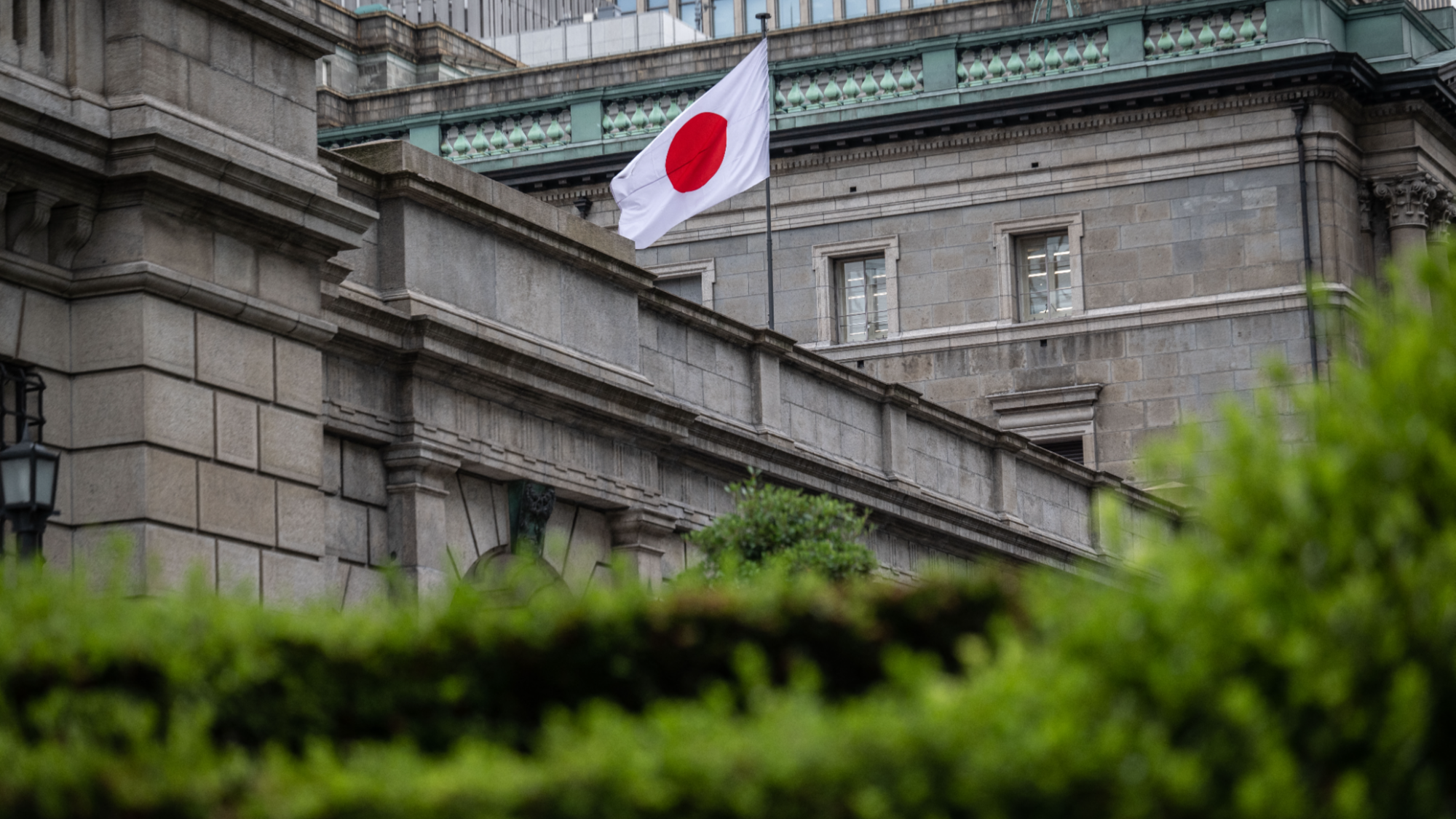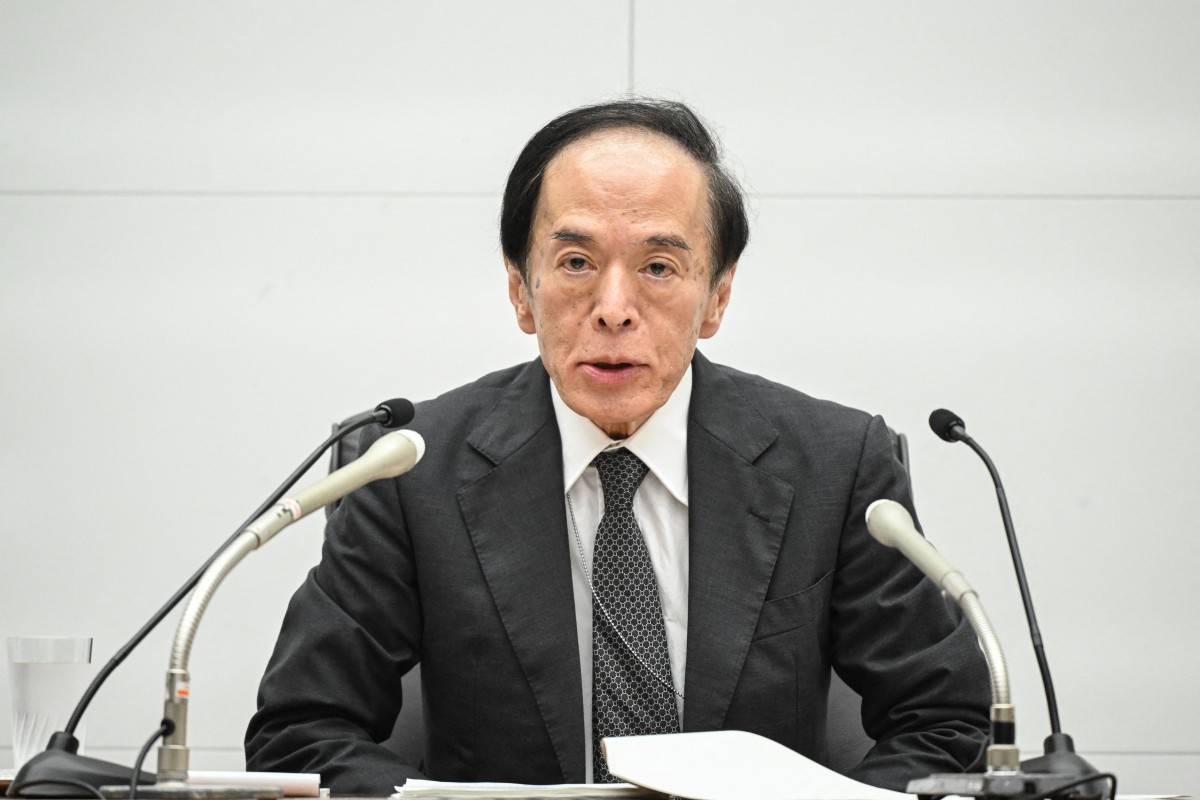
TOKYO - The Bank of Japan raised interest rates in a mostly unexpected move on Wednesday and unveiled a detailed plan to slow its massive bond-buying, taking another step towards phasing out a decade of huge stimulus.
The decision, which defied dominant market expectations for the BOJ to stand pat on rates, takes its short-term policy rate to levels unseen since 2008.
BOJ Governor Kazuo Ueda did not rule out another interest rate hike this year and signaled the bank's readiness to steadily hike borrowing costs to levels deemed neutral to the economy in coming years.
The hawkish comments pushed the dollar below 151 yen for the first time since March, as markets awaked to the reality that Japan was finally eyeing a full-fledged rate hike cycle.
READ MORE: Japan's chief cabinet secretary calls for broad-based wage hikes
Japan's shift to tighter monetary policy also contrasts sharply with the broad swing to lower interest rates by other major economies, with the Federal Reserve expected to signal later on Wednesday that it will cut rates in September as US price pressures moderate.
"If data shows economic conditions are on track, and if such data accumulates, we would of course take the next step," Ueda told a news conference, when asked about the chance of another rate hike this year.
"By raising rates from very low levels and adjusting the degree of stimulus gradually, we can avoid the risk of having to make big adjustments in a short period of time," he said.
ALSO READ: Japan cuts growth forecast, prime minister warns of weak-yen pain
At the two-day meeting ending on Wednesday, the BOJ's board decided to raise the overnight call rate target to 0.25 percent from 0-0.1 percent in a 7-2 vote.
It also decided on a quantitative tightening (QT) plan that would roughly halve monthly bond buying to 3 trillion yen ($19.6 billion), from the current 6 trillion yen, as of January-March 2026.
Ueda said the BOJ decided to raise rates not just because inflation was moving in line with its forecast, but risked overshooting its projection due partly to rising import costs from a weak yen.
"If the economy and prices move in line with our projection, we will continue to raise interest rates," Ueda said. "In fact, we haven't changed much our projection from April. We don't see 0.5 percent as any key barrier when raising rates."

The yen rallied to 150.88 to the dollar on Ueda's comments in choppy trade.
"Despite sluggish consumer spending, monetary officials sent a decisive signal by raising interest rates and allowing for a more gradual balance sheet reduction," said Fred Neumann, chief Asia economist at HSBC.
READ MORE: Japan finds a 'stealth' cure for zombie businesses: Let them fail
"Rising inflation expectations also open the path for ongoing monetary policy normalization by the BOJ. Barring major disruptions, the BOJ is on course to tighten further, with another interest hike by the start of next year," he said.
Right time
The BOJ said its rate increase was based on its view that wage hikes were broadening and prodding firms to pass on higher labor costs through increases in services prices.
Import prices were again accelerating despite some recent moderation, the BOJ said, stressing the need to be vigilant to the risk of an overshoot in inflation.
"Given that real interest rates are at significantly low levels, the BOJ will continue to raise rates and adjust the degree of monetary accommodation" if the economy and prices move in line with its latest projections, it said.
In a quarterly outlook report released on Wednesday, the BOJ roughly maintained its projection made in April that inflation would stay around 2 percent through fiscal 2026.
The decision comes as the Fed looks increasingly set on cutting interest rates, reversing an aggressive tightening cycle that drove up the dollar and caused a painful yen sell-off for Japan.
READ MORE: Japan names new foreign exchange diplomat as yen hits 38-year low
More than three-quarters of economists polled by Reuters on July 10-18 had expected the BOJ to keep rates steady this month.
The BOJ ended negative rates and bond yield control in March in a landmark shift away from its radical stimulus program.
In the quarterly report, the BOJ warned that inflation may be more affected by yen moves than before, given companies were already raising prices and wages.
It also said risks to the price outlook were skewed to the upside for both fiscal 2024 and 2025, underscoring the central bank's increasing alarm over building inflationary pressure.


